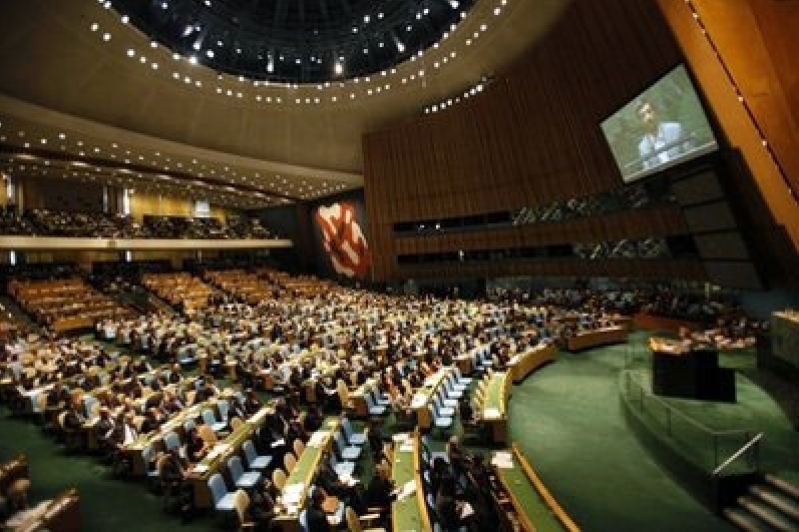
Though overshadowed by flying accusations between Iran and the U.S. on Monday, the opening day of the U.N.’s conference on the Nuclear Non-Proliferation Treaty offered some hopeful signs, said a global church body.
The United States, for the second time in its history, disclosed on Monday the number of nuclear warheads in its stockpile, pointed out the World Council of Churches, which has a long history of advocating for a nuclear-free world.
U.S. Secretary of State Hillary Clinton said the United States would pursue more “transparency” in its nuclear stockpile. Afterward, the Pentagon revealed that it has 5,113 nuclear warheads – active and inactive – in its stockpile, and thousands of more retired nukes awaiting dismantling.
The previously top secret figure shows that the current U.S. nuclear stockpile has dropped 84 percent from its height of 31,255 in 1967 during the Cold War.
WCC noted that the U.S. disclosure of its nuclear stockpile finally answered the group’s long-time call for the revelation.
This month, representatives of countries are participating in a U.N. conference in New York to review the Nuclear Non-Proliferation Treaty. The NPT is aimed at discouraging countries from developing nuclear weapons with the eventual goal of total disarmament.
The issue of nuclear weapon disarmament has become more urgent recently because of the real threat that they might fall into the hands of terrorists.
President Obama and Russian President Dmitri Medvedev signed a historic nuclear arms reduction treaty last month. The treaty was quickly followed by an unprecedented international gathering of heads of state in Washington to discuss how to safeguard nuclear material used in bombs from falling into the wrong hands.
The treaty and nuclear weapons summit are part of the Obama administration’s aggressive effort to move towards a nuclear weapon-free world, as the president promised.
Evangelical leaders have applauded the Obama administration for tackling the unpopular issue. They say that nuclear weapons do not make the world any safer and that there is no moral justification for the weapons of mass destruction.
The Rev. Tyler Wigg-Stevenson, director of the Two Futures Project, said last month ahead of the summit that the only somewhat moral explanation for nuclear weapons is to deter an attack. But even that argument could not justify permanent possession of nuclear weapons.
In addition to being encouraged by U.S. transparency, WCC also welcomed news that a growing number of government representatives in New York are in favor of the idea of a nuclear weapons convention. The proposed convention, unlike the NPT, would seek to ban nuclear weapons completely.
“Nuclear weapons are a threat to the human future,” said the Rev. Dr. Michael Kinnamon, general secretary of the National Council of Churches, on Sunday at a peace activist demonstration in Times Square. "They siphon off resources that could have been used to promote true security through economic and cultural development. If they ever played a stabilizing role in the balance of power, they surely do so no longer in this post-Cold War world."
Kinnamon is among the members of the WCC delegation to the U.N. NPT conference.
Nearly 200 governments, over 120 non-governmental organizations and thousands of demonstrators are in New York for the U.N. conference that began May 3 and ends May 28.







